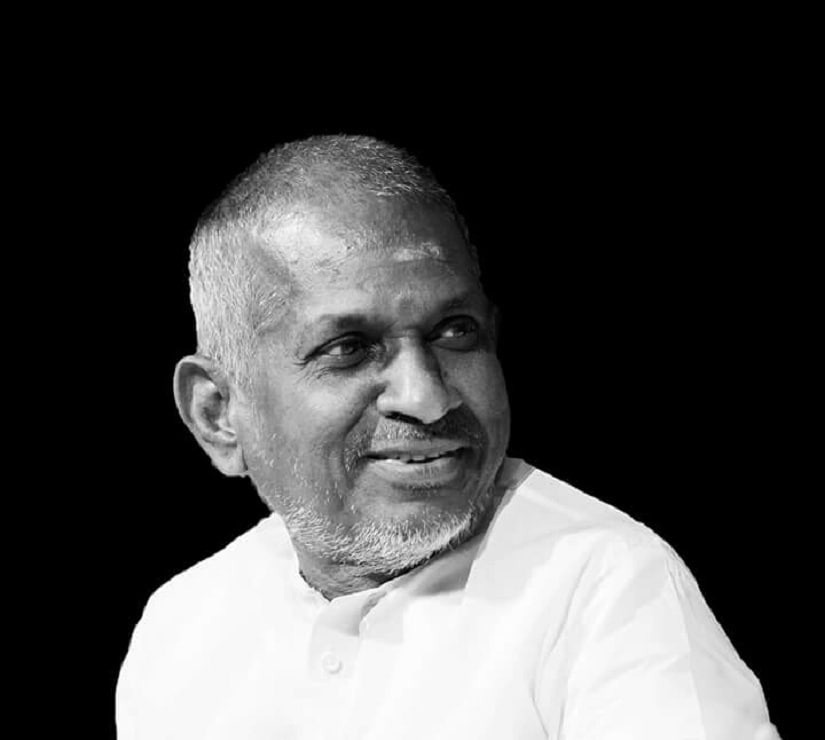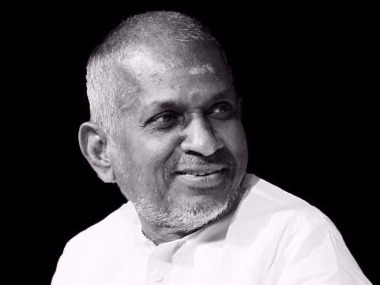Having been honoured with the Padma Vibhushan on 26 January 2018, composer Ilaiyaraaja has entered the pantheon of all-time greats in Indian music. What sets him apart from other honorees, is his exceptional creative profile and unique body of work; he is the first film music composer to have been conferred the Padma Vibhushan. Most of his predecessors (musicians who were awarded the Padma Vibhushan) were ace classical musicians — such as Kumar Gandharva, Mallikarjun Mansur, Pt Bhimsen Joshi, MS Subbulakshmi and Kishori Amonkar, with some exceptions from the popular genre such as Lata Mangeshkar, Asha Bhonsle and KJ Yesudas. Among them, Ilaiyaraaja is a genre-bender: he is adept at Indian, western classical and folk music, a popular musician and a classicist rolled into one; and a master of musical innovation. And he’s probably the only south Indian “film” composer who has a steady fan-following among the leading Carnatic musicians. [caption id=“attachment_4321531” align=“alignnone” width=“825”]
 Ilaiyaraaja. Photo courtesy Facebook/@Ilaiyaraaja[/caption] In fact, that’s what makes the honour unique this time: it chose to showcase the brilliance of a musician, one whose work is almost impossible to emulate because of its eclecticism, enormity, depth and quality. In about four decades since Ilaiyaraaja began his professional life (when in his early 30s), he has scored music for about 1,000 films and has created 6,500 songs — at a mind-boggling average of 20-plus films and 150 songs a year. In his peak years, his annual average often exceeded 30 films. In addition, he has also recorded two major symphonies (How to Name it, Nothing but Wind) and an oratorio based on ancient Tamil poems (Thiruvasagam). A large number of Ilaiyaraaja’s film songs are all-time super-hits and are treatises in the adaptation of Indian and western classical music and folk music, innovative composition techniques and orchestration, and on how to anchor an art in its cultural context (unlike many others who produce good-sounding music that is alien to the life it depicts). And he did this in six languages, which made him a household name in all the south Indian states with a fair cross-over success in Bollywood as well, where he found fans in people such as Amitabh Bachchan.
Ilaiyaraaja. Photo courtesy Facebook/@Ilaiyaraaja[/caption] In fact, that’s what makes the honour unique this time: it chose to showcase the brilliance of a musician, one whose work is almost impossible to emulate because of its eclecticism, enormity, depth and quality. In about four decades since Ilaiyaraaja began his professional life (when in his early 30s), he has scored music for about 1,000 films and has created 6,500 songs — at a mind-boggling average of 20-plus films and 150 songs a year. In his peak years, his annual average often exceeded 30 films. In addition, he has also recorded two major symphonies (How to Name it, Nothing but Wind) and an oratorio based on ancient Tamil poems (Thiruvasagam). A large number of Ilaiyaraaja’s film songs are all-time super-hits and are treatises in the adaptation of Indian and western classical music and folk music, innovative composition techniques and orchestration, and on how to anchor an art in its cultural context (unlike many others who produce good-sounding music that is alien to the life it depicts). And he did this in six languages, which made him a household name in all the south Indian states with a fair cross-over success in Bollywood as well, where he found fans in people such as Amitabh Bachchan.
When he first broke onto the scene in 1976, after working for a few years as a sessions musician, freelancer and assistant to others, with ‘ Annakkili ’, he was instantly marked for stardom because the sound was so unique — it was predominantly folk, but had western orchestration within the scope of film music. The very next year, he demonstrated his prowess in adapting Carnatic music as well. In a movie titled Kavikkuyil, classical musician Balamurali Krishna sang ‘ Chinnakkannan Azhaikkiran ’, a song set in Reetigaula, a blissful Carnatic raga. Besides his prodigious talent, his moorings in the folk traditions of Tamil Nadu and training in western classical and Carnatic music became the markers of his art in the subsequent years; Ilaiyaraaja became the busiest film composer in South India. If in his debut year of 1976 he scored music for four films, by 1979, he had exceeded 30 (that spanned all the south Indian languages). In the 1980s and the 1990s, he was the undisputed king of film music in south India, churning out hit after hit every month like a mean machine when almost all directors — both commercial and art-house — wanted a piece of his work. Obviously, given his prolific output, he was composing on the spur of the moment. People who worked with him, both singers and instrumentalists, marvel at his ability to think, or rather compose, on his feet. While composing music, he took no time in internalising a situation and its emotions, and finding an appropriate musical expression. The output could be folk, western, Indian classical or an amalgamation of all the three. Apparently, while doing background scores during his peak years, he would look at the movie reels just once and start writing music, which would be recorded live in the afternoon after a few rounds of rehearsals. In fact, this is the music that Bollywood director R Balki raves about . According to him, Ilaiyaraaja’s background scores are incomparable compositions that make him matchless not just in India, but in the world. The same gift of spontaneous creativity has been recounted by directors of how Ilaiyaraaja composes songs as well. He is a rare composer who writes his music and doesn’t allow his singers to deviate from the written score. Each Ilaiyaraaja song is completely his own creation and probably that’s why he is unrelenting in his fight for intellectual property rights, even it meant estranging iconic playback singer SP Balasubrahmanyam, who has sung a large number of his songs. It’s hard to summarise the character of Ilaiyaraaja’s repertoire because it’s too immense and diverse, and an Ilaiyaraaja experience varies from person to person. He means different things to different people — for his directors and the followers of his music in the initial years, he is the man who had married folk with western; for pure film music lovers, he is man who created those lilting melodies and fast songs; and for those with a classical bent, his music is a ready-reckoner where one can find reference to a variety of ragas, including some rare ones. There’s an Ilaiyaraaja for every season and for every moment. Among the modern south Indian film composers, arguably he’s the only one who has won all-round praise from top Carnatic musicians as well. Sanjay Subrahmanyan, the reigning superstar of Carnatic music who has steadfastly refused to sing in movies, is an unabashed fan while another star TM Krishna confesses that he grew up listening to Ilaiyaraaja’s music. On hearing about the Padma Vibhushan for Ilaiyaraaja, Sanjay even tweeted that he was “super excited”. According to TN Seshagopalan, another Carnatic exponent, Ilaiyaraaja’s greatness lies in the fact that he has used unexplored ragas for expressing diverse emotions. In a rare gesture, the Madras Music Academy, the citadel of Carnatic music, invited him to be the chief guest of its annual music festival in December 2017, as a clear acknowledgement of his cross-over success. Clearly, the Music Academy, albeit late, recognised how Ilaiyaraaja’s music embodied the grammar, discipline and aesthetics of classical music. In Tamil Nadu, people had long since begun to call him their Isaignani (which, loosely translated, means the all-knowing man of music). Now, with the Padma Vibhushan, the man and his music have moved a step closer to immortality.
)